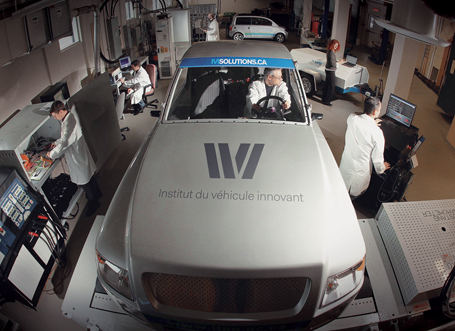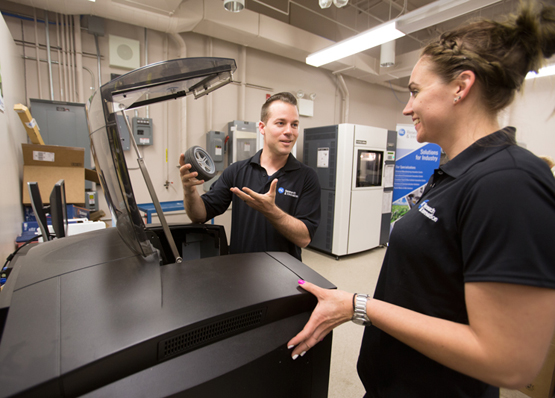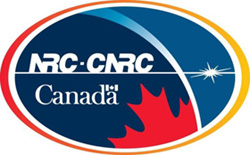About Tech-Access Canada
Tech-Access Canada is a national, not-for-profit organization passionate about expanding the reach of its 60 NSERC-funded Technology Access Centres (TACs) to make their R&D support services accessible to all entrepreneurs and innovators across Canada and contributing to the development of a more inclusive innovation economy.

Our TAC members are the foremost leaders in college applied research and assisting Canadian entrepreneurs in developing new innovative products and solutions using technology.
Collectively, the TAC network provides Canadian firms with access to:

Almost 4 million square feet of dedicated
innovation and applied research space

$477 million worth of state-of-the-art
equipment and research facilities

Over 2,000 experts in business innovation and applied R&D with in-depth industry experience
Vision
Make the innovation and R&D solutions of our member TACs accessible to all Canadian entrepreneurs and businesses to foster inclusive innovation and national economic growth.
Mission
Lead applied research professionals at Technology Access Centres (TACs) to achieve excellence in developing innovative solutions for businesses across Canada.

What We Do
Tech-Access Canada supports the growth, competitiveness, and success of its members by:
- Facilitating the sharing of best practices to help TAC members achieve operational excellence.
- Connecting innovators and entrepreneurs to the TAC(s) within the network with the expertise to advance the development and commercialization of their product or solve their innovation challenge.
- Championing the TACs as major players in Canada’s innovation ecosystem and excellent incubators for top talent and future serial innovators.
- Advocating to senior government officials and heads of agencies on priorities to advance the applied research efforts of the membership and ensure all Canadian innovators can access their R&D services.
- Fostering collaborative partnerships with industry, government, universities, associations, and other innovation stakeholders to advance applied research in Canada.
- Delivering programs that provide opportunities for TAC members to engage in R&D projects with industry partners.
Values
- Excellence: We seek to establish a culture of continuous improvement and exceptional execution to achieve organizational excellence.
- Collaboration: We are stronger together. We collaborate with our TAC members and partners to advance the growth and success of our network, as well as positive innovation outcomes for SMEs across Canada.
- Innovation and Creativity: We embrace creativity and innovative thinking to discover new solutions and fuel the success of our organization.
- Entrepreneurial Spirit: We have a true passion to build, improve, take calculated risks, and execute to achieve greatness.
- Equity, Inclusiveness and Diversity: We value uniqueness and harness diversity to drive organizational innovation. We respect and support our employees to be their true selves, so they thrive as individuals and we succeed together as a team.
About the TACs
A Technology Access Centre (TAC) is a state-of-the-art applied research and innovation centre, affiliated with a Canadian college or cégep, that provides companies with access to cutting-edge technology and equipment, as well as a multi-disciplinary team with the expertise to turn brilliant ideas into market-ready products.
TACs offer value-added R&D and innovation services to Canadian businesses—particularly small and medium-sized enterprises (SMEs)—to develop new prototypes, scale-up processes and solve unique business challenges. They also provide customized training for industry to upgrade technical skills, and de-risk the financial investment of implementing new equipment and adopting emerging technologies. They aim to generate innovation and productivity results, while enhancing the competitiveness of their industry partners.
In addition, TACs positively impact the future of education at colleges and cégeps. They provide outstanding experiential learning opportunities for students from their host institutions and recent graduates from universities, by training them on the latest technologies and equipment, providing engaging work opportunities on applied research projects with industry partners, and guiding them to support businesses undertaking innovation and R&D activities in Canada.
Companies that work with the TACs benefit from flexible intellectual property (IP) policies, and have the right to commercialize the research results and IP. TACs also help de-risk the financial investment required when taking on applied research projects by helping businesses to access and leverage government funding programs.
All TACs within the network have won NSERC-designated Technology Access Centre Grants and receive annual funding from NSERC.
Tech-Access Canada gratefully acknowledges the ongoing support of the Natural Sciences and Engineering Research Council (NSERC) and the National Research Council’s Industries Research Assistance Programs (IRAP) towards this initiative.
How it all started
1983
February 26, 1983
1998
February 26, 1998
1999
February 26, 1999
2000
February 26, 2021
2001
February 26, 2021
2002
February 26, 2021
2003
February 26, 2021
2004
March 1, 2021
2007
March 1, 2021
2008
March 1, 2021
2010
March 1, 2021
2011
March 1, 2021
2012
March 1, 2021
- Camosun Technology Access Centre (CTAC) (formerly CamosunTech), Camosun College, Victoria, BC
- Transbiotech, Cégep de Lévis-Lauzon, Lévis, QC
- Centre d'expertise et de transfert en agriculture biologique (CETAB+), Cégep de Victoriaville, Victoriaville, QC
- Agrinova, Collège d'Alma, Alma, QC
- Centre technologique en aérospatiale (CTA), Collège Edouard-Montpetit, Saint-Hubert, QC
- Food Innovation and Research Studio (FIRSt), George Brown College, Toronto, ON
- Canada's Smartest Kitchen (CSK), Holland College, Charlottetown, PEI
- Centre for Sensors and Systems Integration (CSSI) (formerly Nanotechnology Centre for Applied Research, Industry and Training Services), NAIT, Edmonton, AB
- Technology Access Centre for Aerospace & Manufacturing (TACAM), Red River College, Winnipeg, MB
2013
March 1, 2021
- Centre de développement et de recherche en imagerie numérique (CDRIN), Cégep de Matane, Matane, QC
- Kemitek (formerly OLEOTEK), Cégep de Thetford, Thetford Mines, QC
- Centre de métallurgie du Québec (CMQ), Cégep de Trois-Rivières, Trois-Rivières, QC
- National Bee Diagnostic Centre (NBDC), Grande Prairie Regional College, Grande Prairie, AB
- Lambton Manufacturing Innovation Centre (LMIC), Lambton College, Sarnia, ON
- Screen Industries Research and Training Centre (SIRT), Sheridan College, Toronto, ON
2014
March 1, 2021
- Institut du véhicule innovant (IVI), Cégep de Saint-Jérome, Saint-Jérome, QC
- Institut des communications graphiques et de l’imprimabilité (ICI), Collège Ahuntsic, Montréal QC
- Centre National en Électrochimie et en Technologies Environnementales (CNETE), Collège de Shawinigan, Shawinigan, QC
- Centre for Advancement of Water & Wastewater Technologies (CAWT), Fleming College, Lindsay, ON
- Walker Advanced Manufacturing Innovation Centre (formerly Niagara College Advanced Manufacturing Innovation Centre), Niagara College, Welland, ON
- SAIT Green Building Technologies (GBT), SAIT, Calgary, AB
2015
March 1, 2021
- Innofibre, Cégep de Trois-Rivières, Trois-Rivières QC
- Wearable, Interactive, and Mobile Technologies Access Centre in Healthcare (WIMTACH), Centennial College, Scarborough ON
- Centre d'accès à la technologie en bio-innovation (CAT-B), La Cité, Ottawa ON
- Building Efficiency Technology Access Centre (BETAC) (formerly Centre for Building Envelope Performance), Red River College, Winnipeg MB
2016
March 1, 2021
- In February, the TACCAT Network hires the inaugural Executive Director to implement the network’s workplan.
- TACAM hosts the Spring Best Practices Workshop in Winnipeg, MB.
- The fifth cohort of TAC designations were awarded to five college and cégep applied research centres:
- Mérinov, Cégep de la Gaspésie et des Îles, Gaspé, QC
- Centre de géomatique du Québec (CGQ), Cégep de Chicoutimi, Chicoutimi, QC
- Technology Access Centre for Livestock Production (TACLP), Olds College, Olds, AB
- Canadian Food & Wine Institute Innovation Centre (CFWI IC), Niagara College, Niagara-on-the-Lake, ON
- mHealth & eHealth Development and Innovation Centre (MEDIC), Mohawk College, Hamilton, ON
- In June, at the member’s Best Practices Workshop hosted by TransBIOTech in Lévis, QC, the formal network launches publicly and unveils its new website, branding, and name: Tech-Access Canada | Tech-Accès Canada.
- In November, the pilot for the Interactive Visits for SMEs program launches in Ontario with support from NRC-IRAP.
- SIRT hosts the Fall Best Practices Workshop in Toronto, ON.
2017
March 1, 2021
- Centre d'accès à la technologie en bio-innovation (CAT-B) hosts the Fall Best Practices Workshop in Ottawa
- Tech-Access Canada launches the Jump Ball Initiative to connect any innovator or entrepreneur in Canada with an innovation challenge, to the TACs ready, willing, and able to assist.
- The Interactive Visits pilot program continues to grow and gain interest from clients outside of Ontario.
- Tech-Access Canada represents the TACs by presenting at the Gender Summit 11 North America (GS11NA) conference in Montreal.
- ICI hosts the Fall Best Practices Workshop in Montreal QC
- The TACPITS Portal – Tech-Access Canada’s secure online project management portal was launched to assist the Tech-Access Canada team and member TACs with Interactive Visit project tracking and administration.
- Tech-Access Canada represents the TACs and the Government of Canada by presenting at Intellectual Property Statistics for Decision Makers (IPSDM) conference in Mexico City. The event was co-organized by the Canadian Intellectual Property Office (CIPO), the Mexican Institute of Industrial Property (IMPI), the United States Patent and Trademark Office (USPTO) and the Organization for Economic Co-operation and Development (OECD).
2018
March 1, 2021
- Canada’s Smartest Kitchen hosts the Spring Best Practices Workshop in Charlottetown, PEI.
- Budget 2018 provides $140 million over five years, to increase support for collaborative innovation projects through the College and Community Innovation Program. Impact of Canada’s TACs as key innovation intermediaries highlighted in budget text.
- New funding allows NSERC to launch the sixth TAC competition, the first new TAC competition since 2015.
- Tech-Access Canada delivers TAC to the Future workshop in Winnipeg inviting representatives from member TACs to present operational best practices to an audience of college and cégep attendees interested in applying for the TAC grant.
- Tech-Access Canada registers as a federal not-for-profit corporation based in Ottawa.
- Expansion of Interactive Visits program to TACs in Atlantic, Prairies and Pacific regions.
- Technology Access Centre for Livestock Production hosts the Fall Best Practices Workshop in Olds, Alberta.
- All TACs from the first cohort are renewed successfully with a second five-year mandate.
2019
March 1, 2021
- NSERC launches seventh TAC competition.
- Tech-Access Canada delivers in-person TAC to the Future workshop in Niagara for representatives from colleges interested in applying for a TAC, as well as a virtual workshop for cégeps and CCTTs in Quebec.
- CMQ and Innofibre co-host the Spring Best Practices Workshop in Trois-Rivieres, QC.
- OECD TIP Knowledge Transfer and Policies project publishes case study on the successful Technology Access Centre model, unique in Canada and to the OCED.
- Tech-Access Canada represents the TACs by presenting at the Conference of Montreal presented by the International Economic Forum of the Americas.
- Expansion of Interactive Visits program to TACs in all regions of Canada.
- The sixth cohort of TAC designations are awarded to seventeen college and cégep applied research centres:
- Arts, Crafts & Technology Micro-manufacturing Centre, Aurora College, Inuvik, NWT
- The BC Beverage Technology Access Centre, Okanagan College, Kelowna, BC
- Boreal Forest Plant & Seed Technology Access Centre, NAIT, Peace River, AB
- Prairie Research Kitchen, Red River College, Winnipeg, MB
- Bio-Industrial Process Research Centre (BPRC), Lambton College, Sarnia, ON
- Cambrian College Centre for Smart Mining, Cambrian College, Sudbury, ON
- Applied Research Centre for Natural Products and Medical Cannabis, Loyalist College, Belleville, ON
- Vestechpro, Cégep Marie-Victorin, Montreal, QC
- Centre collégial de transfert de technologie en télécommunications (C2T3), Cégep de Trois-Rivières, Trois-Rivières, QC
- Centre en imagerie numérique et en médias interactifs (CIMMI), Cégep de Sainte-Foy, Québec City, QC
- Centre d'Accès en Technologies des Énergies Renouvables et du Rendement Enérgetique (TERRE), Cégep de Jonquière, Jonquière, QC
- Living Lab en innovation ouverte (LLio), Le Cégep de Rivière-du-Loup, Rivière-du-Loup, QC
- Innovation maritime - Institut Maritime du Québec, Cégep de Rimouski, Rimouski, QC
- Service de recherche et d'expertise en transformation des produits forestiers – SEREX, Cégep de Rimouski, Rimouski, QC
- Réseau CCNB-INNOV, Collège communautaire du Nouveau-Brunswick (CCNB), Bathurst, NB
- Nergica, Cégep de Gaspésie et des Îles, Gaspé, QC
- SEATAC, Nova Scotia Community College, Dartmouth, NS
- All TACs from the second cohort are renewed successfully with a second five-year mandate.
- Tech-Access Canada becomes a signatory to the Dimensions charter, committing to encourage greater equity, diversity and inclusion.
- Centre d'accès à la technologie en bio-innovation (CAT-B) hosts the Fall Best Practices Workshop in Ottawa
2020
March 1, 2021
- The Interactive Visits program is once again open to TACs and SMEs in all regions of the country, that largest program ever.
- The seventh cohort of TAC designations were awarded to thirteen college and cégep applied research centres:
- Agrinova – Biochar, Collège d’Alma, Alma, QC
- Centre de développement des composites du Québec (CDCQ), Cégep de Saint-Jérôme, Saint-Jérôme, QC
- Centre de recherche appliquée en développement durable des territoires (CIRADD), Cégep de la Gaspésie et des Îles, Gaspé, QC
- Centre de recherche et d'innovation en sécurité civile du Québec (Centre RISC), Campus Notre-Dame-de-Foy, Saint-Augustin-de-Desmaures, QC
- Centre d'enseignement et de recherche en foresterie (CERFO), Cégep de Sainte-Foy, Québec, QC
- Centre for Innovation in Manufacturing – Technology Access Centre (CIM-TAC), Red Deer College, Red Deer, AB
- Smart Manufacturing and Advanced Recycling Technologies (SMART) Centre, Conestoga College, ON
- Coalia (formerly Centre de technologie minérale et de plasturgie), Cégep de Thetford, Thetford Mines, QC
- Digital Integration Centre of Excellence (DICE), Saskatchewan Polytechnic, Saskatoon, SK
- Energy and Power Innovation Centre (EPIC), Mohawk College, Hamilton, ON
- Integrated Agriculture Technology Centre (IATC), Lethbridge College, Lethbridge, AB
- Selkirk Technology Access Centre (STAC), Selkirk College, Castlegar, BC
- Technology Access Centre for Oil Sands Sustainability (TACOSS), NAIT, Edmonton, AB
- All TACs from the third cohort are renewed successfully with a second five-year mandate, bringing the Tech-Access Canada family to a solid 60 nationally recognized Technology Access Centres.



